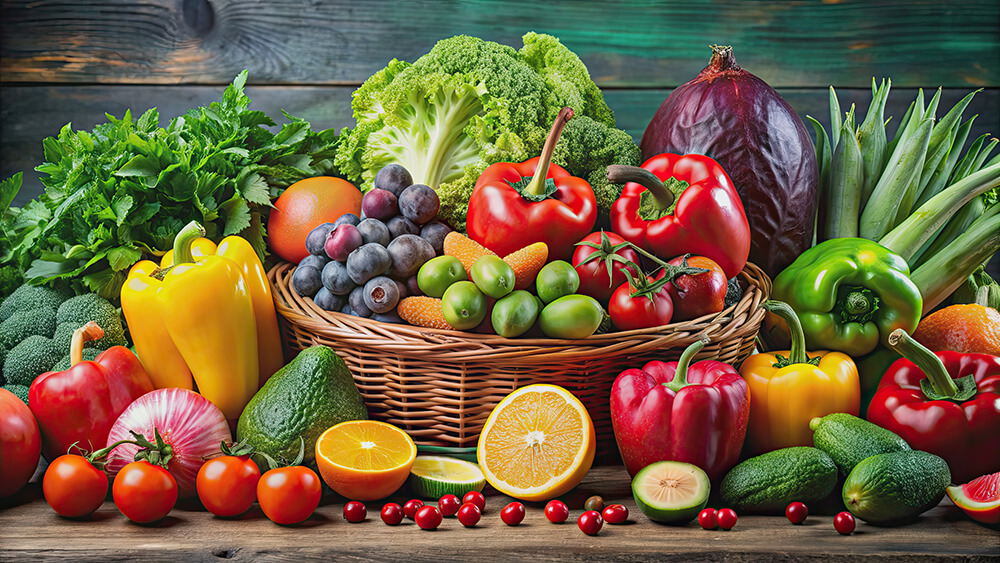Health: Carotenoid Testing and Dietary Supplements - Unveiling the Secret of the Antioxidant Defense Network
 Health: Carotenoid Testing and Dietary Supplements - Unveiling the Secret of the Antioxidant Defense Network
Health: Carotenoid Testing and Dietary Supplements - Unveiling the Secret of the Antioxidant Defense Network
With increasing modern life stress and environmental pollution, protecting the body from free radical damage has become a health concern for everyone. Carotenoids play an essential role in combating oxidative damage caused by free radicals. They, along with other antioxidants, form a robust "anti-aging defense network," helping prevent cellular aging and related diseases.
The Carotenoid Family: Nature's Guardians of Health
The carotenoid family consists of three major types: lutein group, carotene, and curcumin. Each offers distinct health benefits:
1. Lutein Group
The lutein group includes lutein, zeaxanthin, and β-cryptoxanthin. These are essential for maintaining macular health, preventing age-related macular degeneration, diabetic retinopathy, and cataracts, while also enhancing cellular antioxidant capacity.
Common food sources: Kale, spinach, broccoli, and kiwi are excellent sources of lutein.
2. Carotene
Carotene includes β-carotene, α-carotene, and lycopene. α-carotene and β-carotene are converted into vitamin A in the small intestine, promoting eye health, while lycopene, with its strong antioxidant properties, helps reduce cardiovascular disease risks.
Common food sources: Carrots, pumpkin, cantaloupe, sweet potatoes, papaya, tomatoes, and oranges.
3. Curcumin
Curcumin is a natural multifunctional antioxidant with anti-inflammatory, antioxidant, and anticancer properties. It is used in foods as a natural colorant and stabilizer and supports the body's antioxidant defense, slowing aging processes.
Measuring Antioxidant Capacity
By measuring carotenoid levels in the skin, we can effectively assess the body's antioxidant capacity. Higher values indicate stronger protection against free radicals, reducing cellular aging and disease risks.
Daily Antioxidant Boost Starts with Diet
To enhance antioxidant capacity, include more carotenoid-rich foods in your daily diet, such as green, orange-yellow, and red fruits and vegetables:
- Green leafy vegetables: Kale, spinach, broccoli, kiwi
- Orange-yellow fruits and vegetables:Carrots, pumpkin, cantaloupe, sweet potatoes, papaya, tomatoes, oranges
- Red fruits and vegetables: Tomatoes
The Practical Benefits of Carotenoid Intake
Carotenoids are not just natural antioxidants; they support health in multiple ways:
-
Promoting Eye Health
- Lutein & Zeaxanthin: Help filter blue light, protect the eyes from UV damage, and reduce the risk of macular degeneration and cataracts.
- β-Carotene: Converts to vitamin A in the body, supporting vision health and preventing night blindness. -
Antioxidant Effects
Carotenoids are powerful antioxidants that neutralize free radicals, reduce cellular damage, and lower the risk of chronic diseases, including cardiovascular disease, diabetes, and cancer. -
Supporting Heart Health
Carotenoids reduce the oxidation of LDL (bad cholesterol), minimizing arterial plaque buildup and supporting cardiovascular health.
By consuming carotenoid-rich foods, monitoring antioxidant levels, and incorporating healthy habits into daily life, we can effectively protect our bodies from oxidative stress. With a balanced diet and lifestyle adjustments, carotenoids can become your best partners in achieving comprehensive health from the inside out!